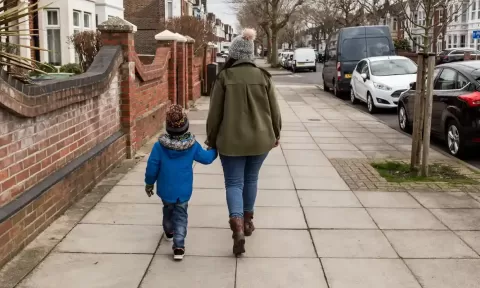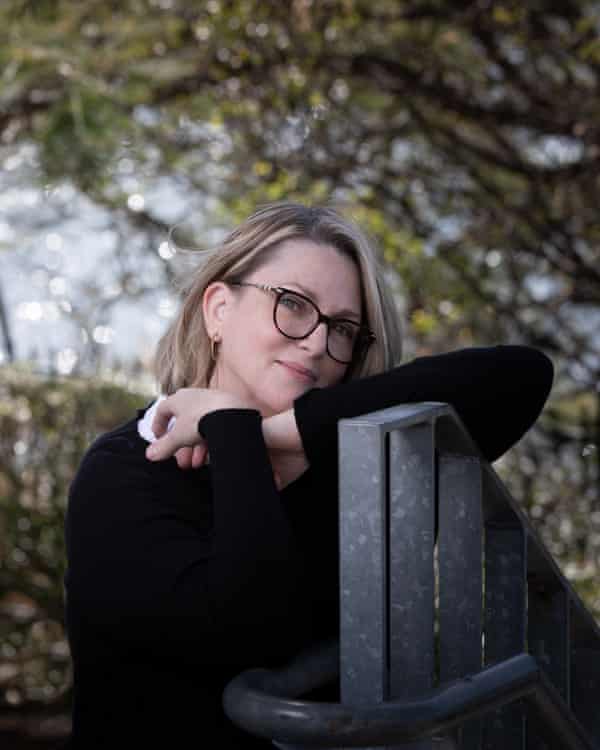
Al Campbell
Autism comprises an exponentially wide range of presentations – but the discourse surrounding it doesn’t
A fellow author recently alerted me to their inclusion of an autistic character in their upcoming debut. This very sweet young writer felt the need to be open with me, given I have two sons on the spectrum and that autism is outside their lived experience. This writer also let me know that they would completely understand if, on account of this depiction, I chose not to read their book.
Over the past two decades, my two boys and I have rather kept to ourselves. My younger son, Rupert, has some difficulty going out and about, so we tend to stick to the deeply etched routines that have developed over the years. As a result, I’m probably the last person to consult regarding preferred terminology, because I genuinely don’t have a clue. My sons identify as autistic, as “having autism”, and as being “on the spectrum”. Perhaps we’re outliers in this regard, but our focus has always been on life and communication skills, on building independence and personal safety. We know who we are; no labelling overhaul changes that.
My writing friend certainly tried to do their sensitivity homework – involving autistic readers in the development of their manuscript – and I tried to reassure them further, suggesting there are surely as many ways to portray an autistic person as there are autistic people on this earth. It’s easier, of course, for television and film to maintain the autistic savant trope (I’m looking at you, The Good Doctor) and to tread the well-worn path of the quirky-but-awkwardly-adorable autistic teen cut-out, as offered by Atypical. Some on the spectrum resemble the largely independent Sam Gardner on that show, though many others share little if anything of his high-level executive function. And while we’re being honest, the well-intentioned Love on the Spectrum really ought to be titled Love (Confined to a Very Small Frequency) on the Spectrum, for similar reasons.
That is because autism comprises an exponentially wide range of presentations. Yet with the staggering rise in the number of people being diagnosed as on the spectrum, the current discourse surrounding autism appears led by highly articulate people diagnosed well into adulthood, people who no doubt have faced challenges – who face them still, daily – and yet have sufficient skills to negotiate their way through mainstream school and university. They might have PhDs and partners and children, drive cars, work jobs, travel the world and live entirely by their own means. They write and speak well, and proudly, of their lived experience on the neurodivergent (not disordered) hill.
But alongside them on that wide spectrum, there are, and will always be, people like my boy. Rupert does not write by hand nor speak; he is entirely reliant on me for almost every aspect of his life. He attends a special school and will never live independently. He will never drive a car or go out on a date or be able to walk down the road to the shops and buy an apple for his lunch. At almost 19, his self-care requires prompting, assistance and supervision. He will never be able to advocate on his own behalf nor successfully reach out to others for advocacy. His neurological differences mean that Rupert requires around-the-clock care, and always will. His neurodivergence doesn’t set him apart in ways that are positive – in terms of employment, for example – as it well may for others.
As a society, we appear to accept – finally – that every person with a disability is a unique individual, yet we seem unwilling to extend this understanding to those who parent and care for them. For some reason, carers are treated as though we are all carved from the same homogeneous clump of clay. But carers are people too, and we are all different.
Different backgrounds, varying levels of education, singular life experience. Distinct personalities with equally peculiar strengths, weaknesses, skill sets and views. Not surprisingly, we all cope differently. One carer’s outlook may be wildly different to another’s. Our lived truths diverge, always more than two roads in any yellow wood.

For example, some autistic people struggle with sleep; my Rupert certainly does. In fact, as I write this essay, I’ve been awake since 2:34am as that is when Rupert needed to start the day. This is not unusual and is part of who we are. This sleep disruption does, however, result in me being a less-than-ideal version of myself. I struggle to function with only three and a half hours’ sleep and so must manage my daily tasks accordingly. I have to say “no” to things, reprioritise. After years and years of inadequate rest, a price is paid. You don’t function well at work nor, sometimes, at home. You may lose your job or come to accept that full-time employment is no longer a feasible option. This results in financial hardship. Unable to cover your mortgage, you may become a renter in your 50s. This is my reality, mine and my family’s.
Applauding our new Australian of the Year in Guardian Australia last week, George Taleporos wrote that “we can’t all love our disability” like Dylan Alcott does. The same applies to carers. In my novel, The Keepers, I’ve tried to show that hardship and love can, and do, coexist. That one doesn’t cancel out the other. That caring for people with special needs often does involve sacrifice and sorrow and unbelievably hard work, and that’s OK. That there isn’t always a clear, textbook way to think or feel or proceed. Things can be complex, not neat. We fall down, failing often, and only some of us get back up. We make mistakes, sometimes the same ones, over and again. We panic, we white-knuckle our way through days and months at a time. We aren’t cut-outs, we aren’t all the same.
Few people at the hard-end of the disability spectrum will become authors. Similarly, non-verbal, profoundly autistic people like Rupert cannot be actors; plainly, this is not a realistic expectation.
So when a narrative simply cannot be told by an #ActuallyAutistic person, what then? We don’t tell it, at all? That doesn’t seem right to me.
My son will never speak to, nor write about, his truth. His experience of life is just as valid as the experience of those better able to tell their tales. His voice equally deserves to be heard. Otherwise, how will anyone know about him, about others like him? Aren’t they just as important?
The Keepers by Al Campbell is out now through UQP